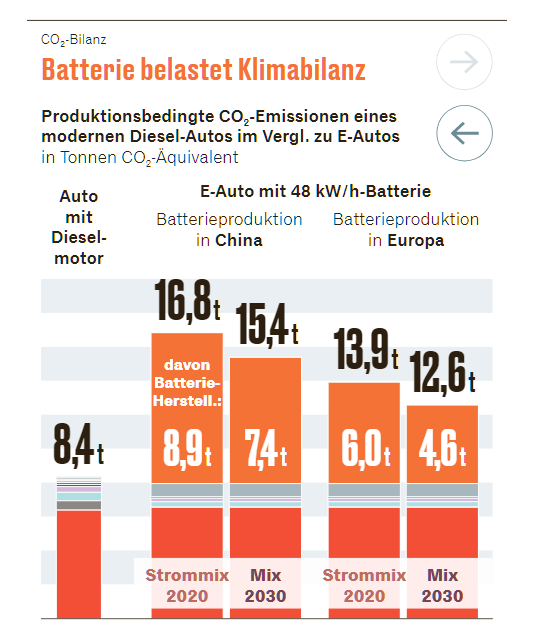
In the face of conspiracies and global problems, scientists need to become better storytellers.
Of course facts come first.
But conveying them in a way that is engaging, memorable and inspiring is important too!
I found that out the hard way and I have some advise.
Of course facts come first.
But conveying them in a way that is engaging, memorable and inspiring is important too!
I found that out the hard way and I have some advise.

Thirteen years ago I felt like I was just making money, not improving the world. I took a sabbatical in search of meaning.
I found that solar, wind and electricity storage where improving in predictable ways that promised cheap, clean and abundant energy forever. It inspired me.
I found that solar, wind and electricity storage where improving in predictable ways that promised cheap, clean and abundant energy forever. It inspired me.
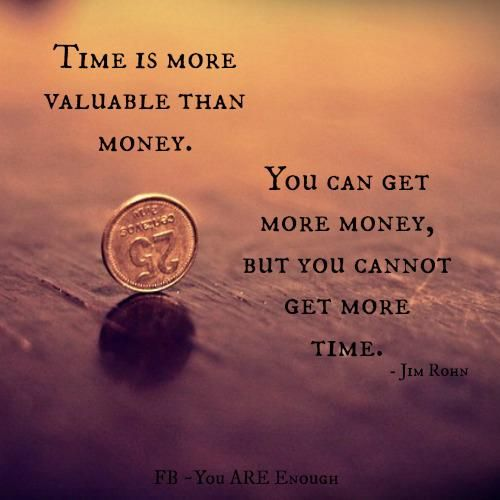
I decided to dedicate my life to accelerating the transition to sustainable energy and mobility. To make a name for myself I wrote a book about electric vehicles.
After many months of long days researching and writing I proudly presented the result to a good friend and editor.
After many months of long days researching and writing I proudly presented the result to a good friend and editor.
He said: "Interesting topic but you really make the reader work for it."
For those of you who don't write: it's about the worst thing you can possibly hear. I was devastated.
For those of you who don't write: it's about the worst thing you can possibly hear. I was devastated.
But he told me that I might be able to save the book by becoming aware that I was telling a story.
He also gave me a couple of books on story.
For me two stood out:
"Story" is a book for aspiring Hollywood script writers that made me aware of the importance of conflict.
He also gave me a couple of books on story.
For me two stood out:
"Story" is a book for aspiring Hollywood script writers that made me aware of the importance of conflict.
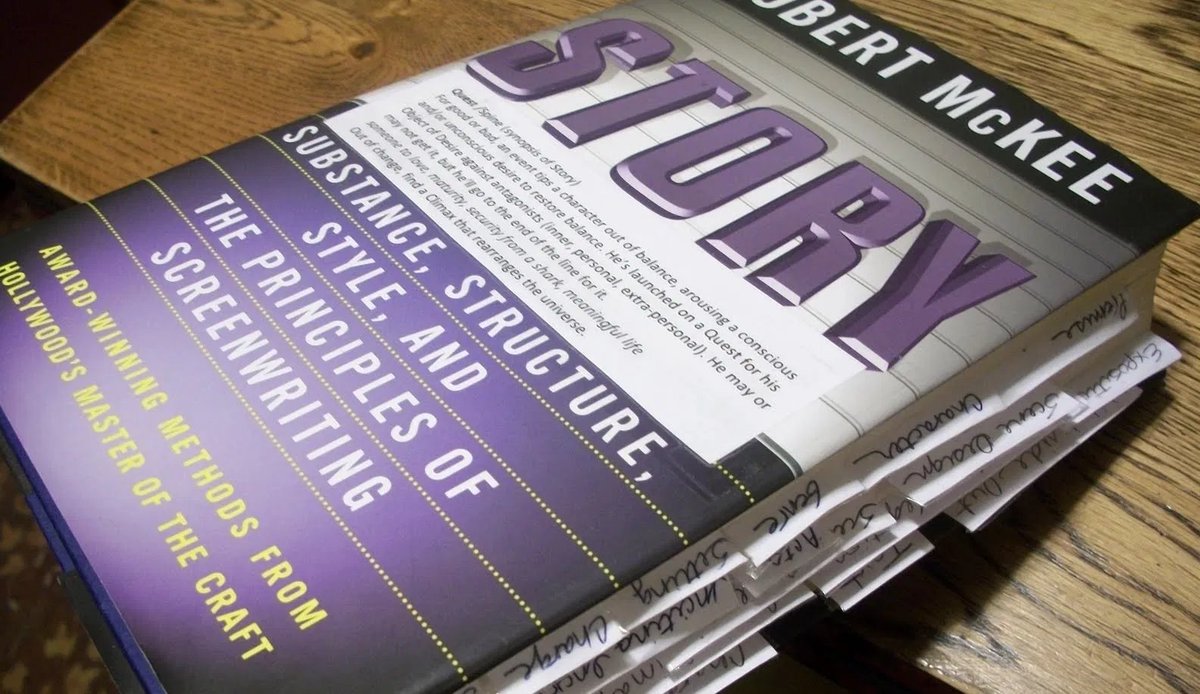
"The Hero with a Thousand Faces" by Joseph Campbell places stories in a rich mythological tradition.
I learned to think in terms of story arcs and taking the reader on a journey.

I learned to think in terms of story arcs and taking the reader on a journey.
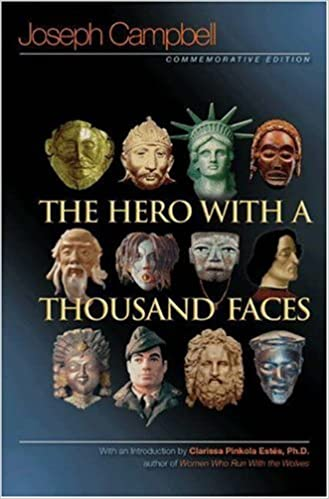
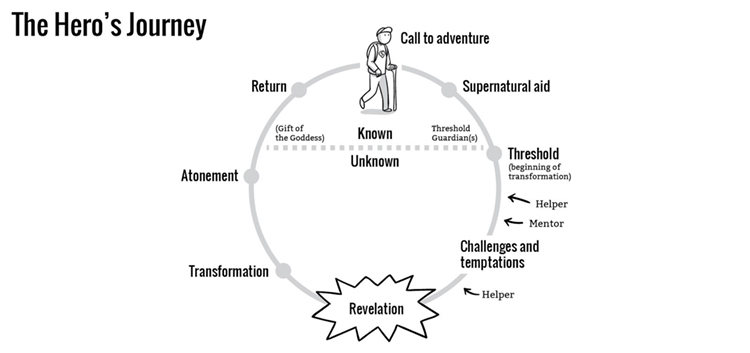
After three more months I gave him the new draft and he asked me: "Who was your editor?"
And I said: "The books on storytelling you gave me."
He looked at me for a long moment and then said: "Well, it's high time you send this to the publisher."
zenmo.com/elektrisch-rij…
And I said: "The books on storytelling you gave me."
He looked at me for a long moment and then said: "Well, it's high time you send this to the publisher."
zenmo.com/elektrisch-rij…
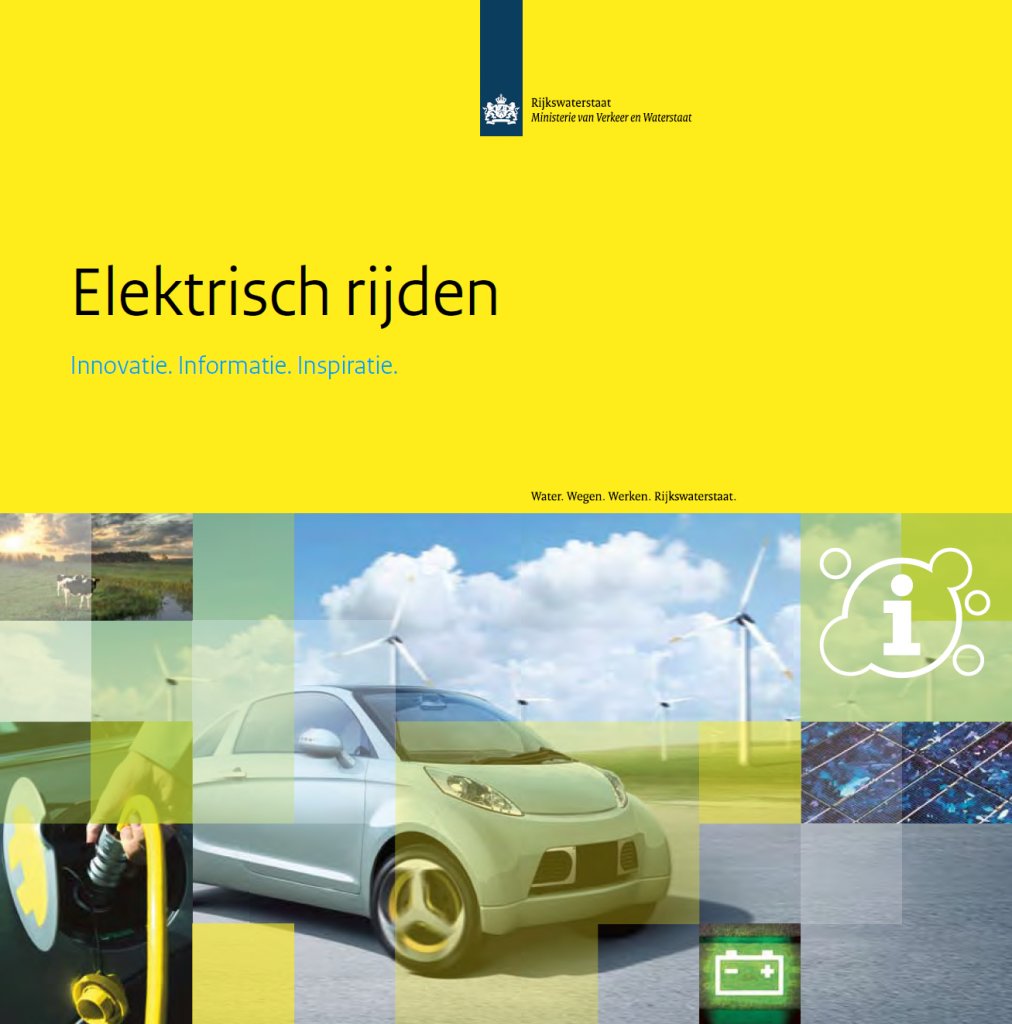
I'm not claiming the book is a great story but the experience made me aware of the importance of stories.
You should be aware that you tell a story, and you should respect your audience enough to tell them a good one.
That also gets your message across much better.
You should be aware that you tell a story, and you should respect your audience enough to tell them a good one.
That also gets your message across much better.
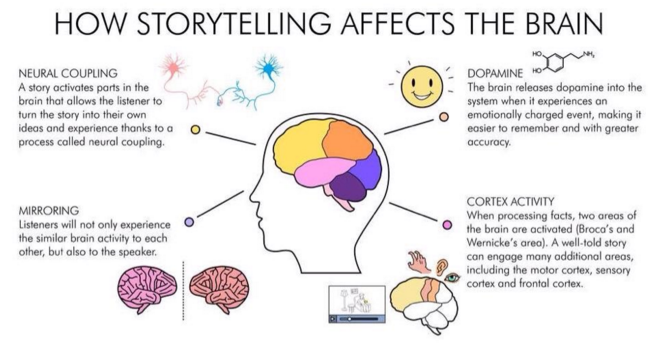
Since then I always tell my students to focus on storytelling and to at least ask themselves:
Start with the problem you are addressing.
Why does it matter to you and me emotionally?
Then show how you are solving that problem.
How is the solution satisfying on a personal level?
Start with the problem you are addressing.
Why does it matter to you and me emotionally?
Then show how you are solving that problem.
How is the solution satisfying on a personal level?
Simple example: a student had modelled electric trucks. He had done good research on an interesting topic but his thesis presentation was boring.
I asked him the previous questions and he came up with this step towards a storyline:
I asked him the previous questions and he came up with this step towards a storyline:
But if you live there, it's not the beaches but the air pollution from traffic that is most noticeable. It makes us sick and shortens the lives of the people I love. 

Electric cars and trucks could drive out the demon of air pollution. My research shows that electric trucks are possible. Now I can dream about my city becoming healthy and clean."
This made all the difference to his presentation.
This made all the difference to his presentation.

Onwards to climate change.
It's often told as a tragedy and that really resonates. But this makes the story depressing and paralysing while many people resist being cast in the role of loser.
presentation-guru.com/on-structure-t…
So I want to present some alternative storylines.
It's often told as a tragedy and that really resonates. But this makes the story depressing and paralysing while many people resist being cast in the role of loser.
presentation-guru.com/on-structure-t…
So I want to present some alternative storylines.
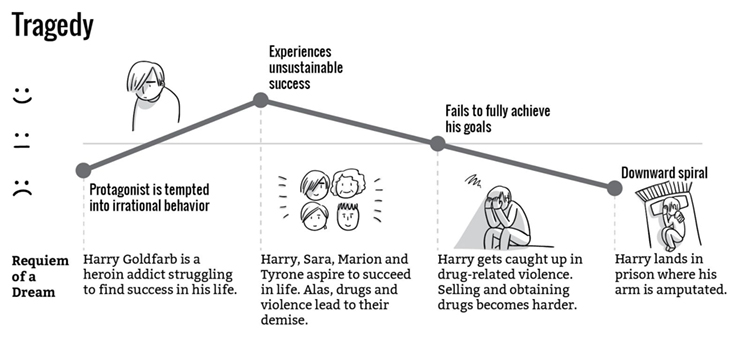
The most straightforward choice is to tell it like a quest. Climate change is a call to action. We embark on a mission towards clean abundant energy and stop climate change by reducing our emissions. It takes heroism and there will be suffering but we'll save civilization. 
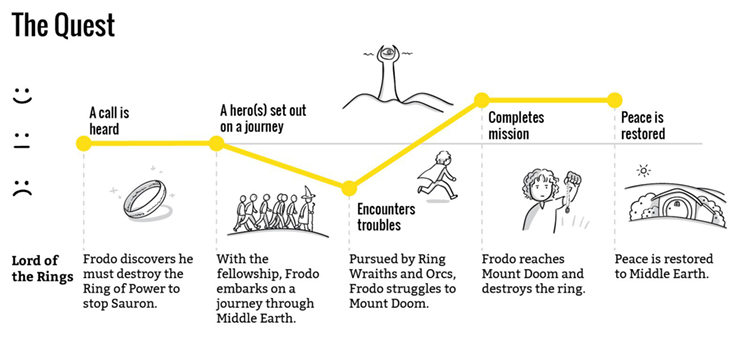
You could also make it a rags to riches story where climate change is just a temporary setback but the overall trend is that we lift everybody out of poverty after we overcome the problems caused by our unfortunate focus on fossil fuels. 
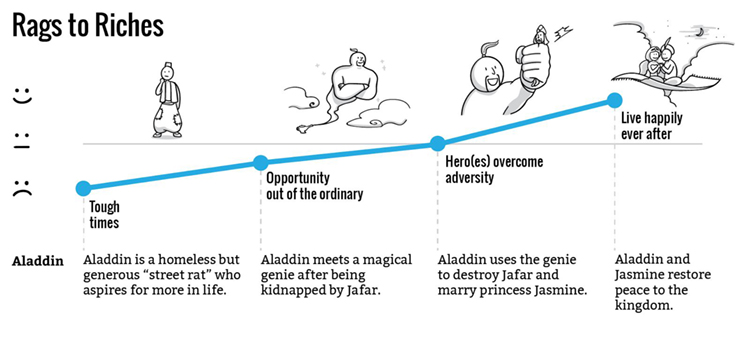
Personally I like the rebirth story:
Fossil fuels and consumerism have us trapped in a vicious cycle.
But using science we discover clean technology and what really makes us happy.
This enables us to break the spell and after many adventures we finally live happily ever after.
Fossil fuels and consumerism have us trapped in a vicious cycle.
But using science we discover clean technology and what really makes us happy.
This enables us to break the spell and after many adventures we finally live happily ever after.
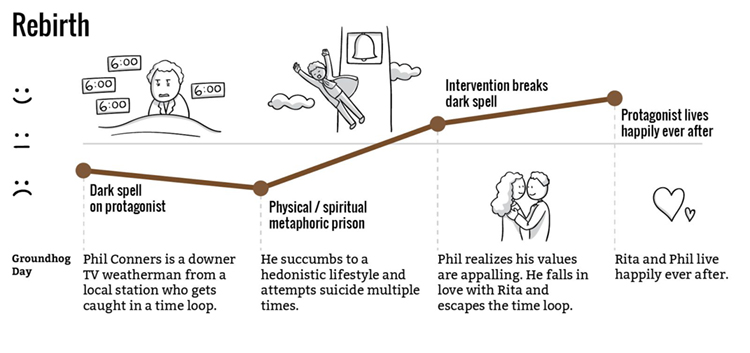
Now my point is NOT that we should make stuff up!
I *hate* it when climate problems are exaggerated to apocalyptic proportions. That mostly leads to despair and paralysis in the short term and lack of credibility in the long term.
This is not a sprint but a marathon.
I *hate* it when climate problems are exaggerated to apocalyptic proportions. That mostly leads to despair and paralysis in the short term and lack of credibility in the long term.
This is not a sprint but a marathon.
I also hate it when renewable solutions are oversimplified. We need more than some miracle technologies or simple behavioral hacks.
This is complex stuff and denying that gets us nowhere.
This is complex stuff and denying that gets us nowhere.
I just ask that you think about how you 'package' your information. How can you make your research a call to action with your reader in the role of hero(ine) saving the day?
Because us scientists having the facts is not enough.
The world also needs our storytelling capabilities.
Because us scientists having the facts is not enough.
The world also needs our storytelling capabilities.
• • •
Missing some Tweet in this thread? You can try to
force a refresh






